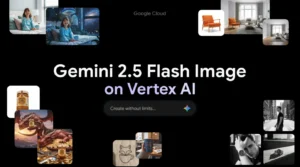10 Best AI-Powered Tools For Semantic Search You Need To Try
Before semantic search, finding relevant information meant playing a guessing game with keywords and sifting through pages of irrelevant results. After implementing the best AI-powered tools for semantic search, users experience intuitive, context-aware results that understand intent and deliver exactly what they need. The bridge between these two experiences lies in choosing the right AI-powered platform for your specific needs.
Cohere
Cohere stands out as one of the most powerful platforms in the semantic search space, offering enterprise-grade natural language processing capabilities that truly understand context and meaning[1]. Their semantic search API leverages advanced transformer models to deliver results that go way beyond simple keyword matching.
Key Features
Cohere’s platform excels at understanding semantic relationships between concepts, making it perfect for complex queries. Their API can process multiple languages and handles nuanced search requests with impressive accuracy. The platform also offers customizable models that you can fine-tune for specific domains or industries.
Pricing
Cohere operates on a usage-based pricing model, starting with a generous free tier for developers. Their production plans scale based on API calls and model complexity, making it accessible for both startups and enterprise clients.
Pros and Cons
Pros:
- Excellent multilingual support
- Highly customizable models
- Strong enterprise features
- Robust API documentation
Cons:
- Can be complex for beginners
- Higher costs for large-scale implementations
- Requires technical expertise for optimal setup
Best For
Cohere works best for enterprises and developers who need advanced semantic understanding for customer support, content discovery, or research applications.
Google Cloud Semantic Search
Google Cloud brings the power of Google’s search expertise to enterprise applications through their semantic search API[1]. This platform utilizes the same advanced natural language processing and machine learning techniques that power Google’s own search engine.
Key Features
Google Cloud’s semantic search delivers contextually relevant results by understanding user intent and query meaning. The platform integrates seamlessly with other Google Cloud services and offers real-time processing capabilities. Their machine learning models are continuously updated to improve accuracy and relevance.
Pricing
Google Cloud follows a pay-as-you-go model with competitive pricing tiers. They offer free credits for new users and volume discounts for enterprise customers.
Pros and Cons
Pros:
- Backed by Google’s search technology
- Excellent integration with Google ecosystem
- Scalable infrastructure
- Continuous model improvements
Cons:
- Can be expensive at scale
- Limited customization options
- Requires Google Cloud ecosystem adoption
Best For
Google Cloud semantic search is ideal for organizations already using Google Cloud services or those needing enterprise-scale search capabilities with minimal setup complexity.
Useful Articles:
NLP Cloud
NLP Cloud provides a semantic search API powered by state-of-the-art natural language processing models, ensuring precise and relevant search results even for the most complex queries[1]. What sets them apart is their focus on customization and industry-specific applications.
Key Features
NLP Cloud offers highly customizable semantic search engines that can be tailored to specific industries or use cases. Users can integrate their own business data to improve search accuracy and relevance. The platform also supports synonym recognition and handles both structured and unstructured data sources.
Pricing
NLP Cloud offers flexible pricing plans starting with a free tier for testing. Their paid plans are based on API usage and include options for dedicated instances for high-volume users.
Pros and Cons
Pros:
- Highly customizable solutions
- Industry-specific optimization
- Supports diverse data types
- Good documentation and support
Cons:
- Smaller ecosystem compared to major players
- May require more setup time
- Limited pre-built integrations
Best For
NLP Cloud excels for businesses needing customized semantic search solutions tailored to specific industries like healthcare, legal, or e-commerce.
OpenAI Semantic Search
OpenAI leverages their advanced language models and machine learning techniques to understand the meaning behind user queries and match them with relevant results[1]. Their semantic search capabilities are built on the same foundation as ChatGPT, offering impressive accuracy and comprehension.
Key Features
OpenAI’s semantic search uses extensive training on diverse datasets to deliver highly accurate results for complex queries. The platform is customizable for specific domains and offers fine-tuning capabilities. Their embeddings API allows developers to build custom semantic search applications.
Pricing
OpenAI uses a token-based pricing model with different rates for various models. They offer free credits for new users and competitive pricing for production use.
Pros and Cons
Pros:
- Cutting-edge language understanding
- Excellent for complex queries
- Strong developer community
- Comprehensive documentation
Cons:
- Can be expensive for high-volume use
- Rate limiting on free tiers
- Requires API integration knowledge
Best For
OpenAI semantic search is perfect for developers and businesses needing advanced language understanding for content analysis, research, or customer support applications.
Sapling.ai
Sapling.ai leverages sophisticated NLP methods to facilitate natural language-based information retrieval with high precision and quick response times[1]. Their platform is designed to handle intricate queries while maintaining excellent performance.
Key Features
Sapling.ai accommodates an extensive array of data sources, including both structured and unstructured data. The platform features synonym recognition and auto-complete suggestions that enhance user experience. Their semantic search capabilities excel at understanding context and intent.
Pricing
Sapling.ai offers competitive pricing with various tiers based on usage volume. They provide free trials and custom enterprise pricing for large-scale implementations.
Pros and Cons
Pros:
- Fast response times
- Handles diverse data sources
- User-friendly interface
- Good auto-complete features
Cons:
- Smaller market presence
- Limited advanced customization
- Fewer third-party integrations
Best For
Sapling.ai works well for organizations needing fast, accurate semantic search with minimal setup complexity and good user experience features.
Meilisearch
Meilisearch is an open-source, lightning-fast search engine designed for developers and enterprises seeking to embed intuitive, scalable search experiences into applications[17]. While not exclusively AI-powered, it offers intelligent features that enhance semantic understanding.
Key Features
Meilisearch provides typo tolerance and instant search capabilities with customizable ranking rules. The platform offers faceted search, multi-language support, and developer-friendly APIs. Their search algorithm includes semantic understanding features that improve result relevance.
Pricing
Being open-source, Meilisearch is free to use and can be self-hosted. They also offer cloud hosting options with competitive pricing for managed services.
Pros and Cons
Pros:
- Open-source and free
- Lightning-fast performance
- Developer-friendly
- Self-hosting options
Cons:
- Requires technical setup
- Limited AI features compared to others
- Smaller ecosystem
Best For
Meilisearch is ideal for developers and organizations wanting fast, customizable search with the flexibility of open-source solutions and self-hosting capabilities.
Useful Articles:
Semrush
Semrush has evolved beyond traditional SEO tools to include AI-powered semantic search capabilities for content optimization and keyword research[8]. Their platform combines semantic understanding with comprehensive SEO insights.
Key Features
Semrush offers AI-enhanced keyword research and semantic content analysis. Their platform can identify semantic relationships between keywords and suggests related terms for better content optimization. The tool also provides competitor analysis with semantic insights.
Pricing
Semrush starts at $139.95 per month with multiple tiers available. They offer free trials and custom enterprise pricing for large organizations.
Pros and Cons
Pros:
- Comprehensive SEO features
- Strong semantic keyword analysis
- Excellent competitor insights
- Large user base and community
Cons:
- Expensive for small businesses
- Primarily focused on SEO use cases
- Steep learning curve
Best For
Semrush excels for SEO professionals and marketers who need semantic search capabilities combined with comprehensive keyword research and competitive analysis.
You.com
You.com is a privacy-focused search platform that uses AI to provide personalized results while keeping user data safe[2]. Their chat-based interface allows real-time query refinement with semantic understanding.
Key Features
You.com emphasizes user privacy while delivering personalized semantic search results. The platform allows users to customize their sources and integrate preferred tools. Their AI understands context and can handle follow-up questions conversationally.
Pricing
You.com offers a free tier with basic AI search capabilities. Their Pro plan costs $20/month (or $15/month annually) with advanced features, and Team plans start at $30/month.
Pros and Cons
Pros:
- Strong privacy protection
- Conversational search interface
- Customizable sources
- Good free tier
Cons:
- Smaller index compared to major search engines
- Limited enterprise features
- Newer platform with evolving capabilities
Best For
You.com is perfect for privacy-conscious users and small teams who want personalized semantic search without compromising data security.
ChatGPT Search
ChatGPT represents a leap toward intelligent search tools that behave like conversation partners[2]. While primarily known for text generation, ChatGPT excels at providing context-driven search responses through natural language interactions.
Key Features
ChatGPT offers conversational search capabilities where users can ask follow-up questions to refine results. The platform can summarize complex reports and academic papers with remarkable clarity. Recent updates include real-time web search integration.
Pricing
ChatGPT offers a free tier with basic access. Plus plans cost $20/month, Pro plans are $200/month, and Team plans start at $25/user/month annually.
Pros and Cons
Pros:
- Natural conversation interface
- Excellent at explaining complex topics
- Strong reasoning capabilities
- Regular feature updates
Cons:
- Can sometimes provide outdated information
- Limited real-time data access in free tier
- May generate plausible but incorrect answers
Best For
ChatGPT search works best for research and analysis tasks where conversational interaction and explanation capabilities are more important than comprehensive web indexing.
Surfer AI
Surfer AI helps research, write, and optimize long-form content for search engines with semantic understanding capabilities[19]. Their platform combines AI content generation with semantic keyword optimization.
Key Features
Surfer AI analyzes semantic keyword relationships and provides content optimization recommendations. The platform can generate content that naturally incorporates related terms and concepts. Their tool also offers competitor analysis for semantic content gaps.
Pricing
Surfer AI pricing varies based on features and usage. They offer different plans for content creators, agencies, and enterprises with custom pricing available.
Pros and Cons
Pros:
- Strong content optimization features
- Good semantic keyword analysis
- Competitor content insights
- User-friendly interface
Cons:
- Primarily focused on content creation
- Limited general search capabilities
- Subscription-based pricing
Best For
Surfer AI is ideal for content creators and SEO professionals who need semantic search capabilities specifically for content optimization and keyword research.
Comparison Of The Best AI-Powered Tools For Semantic Search
| Tool | Best For | Pricing | Key Strength | Customization |
|---|---|---|---|---|
| Cohere | Enterprise applications | Usage-based | Advanced NLP models | High |
| Google Cloud | Large-scale implementations | Pay-as-you-go | Google’s search technology | Medium |
| NLP Cloud | Industry-specific solutions | Flexible tiers | Customizable engines | High |
| OpenAI | Advanced language tasks | Token-based | GPT-powered understanding | Medium |
| Sapling.ai | Fast, accurate search | Competitive tiers | Quick response times | Medium |
| Meilisearch | Developer projects | Open-source/Free | Lightning-fast performance | High |
| Semrush | SEO and marketing | $139.95+/month | Comprehensive SEO features | Low |
| You.com | Privacy-conscious users | Free/$20/month | Privacy protection | Medium |
| ChatGPT | Research and analysis | Free/$20+/month | Conversational interface | Low |
| Surfer AI | Content optimization | Subscription-based | Content creation focus | Medium |
The best AI-powered tools for semantic search each serve different needs and use cases. Whether you’re building enterprise applications, optimizing content, or simply want better search results, there’s a solution that fits your requirements and budget. Consider your specific needs, technical expertise, and budget when choosing the right platform for your semantic search implementation.







